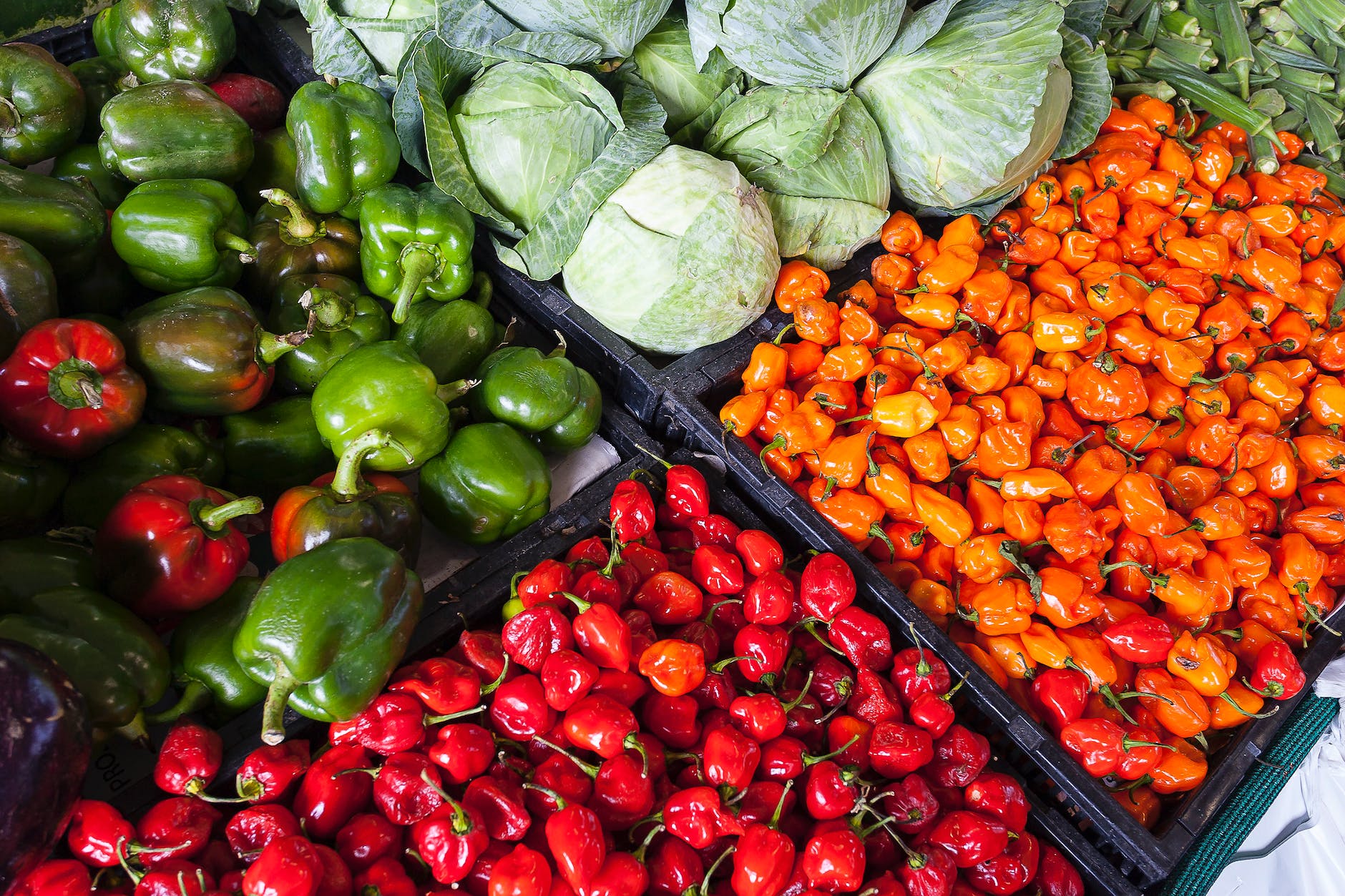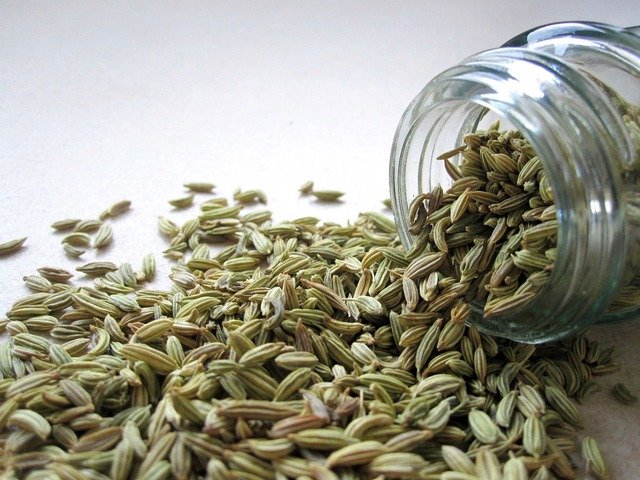
Our brain, an energy-intensive organ, uses up to 20% of the body’s calories. Therefore, the foods we eat significantly impact our brain function, influencing our memory, mood, concentration, and other cognitive abilities. This comprehensive guide discusses numerous foods that can bolster your memory and enhance brain health. Let’s delve into this enlightening journey of discovering your brain’s best friends.
Understanding the Connection between Diet and Brain Health
The food we consume can either be the most potent form of medicine or the slowest form of poison for our body, including our brain. Nutrients derived from food serve as fuel for brain function, playing a vital role in influencing the structure and nature of brain cells. The right food choices can improve specific mental tasks such as memory and concentration, while poor dietary patterns may increase the risk of various psychiatric and neurologic disorders.
The Pantheon of Brain-Boosting Foods
Omega-3-Rich Foods for Brain Cell Health
Approximately 60% of our brains are made of fat, and half of that fat is the omega-3 kind. Our bodies use these fatty acids to build brain and nerve cells, and they are crucial for learning and memory.
There are several types of omega-3 fatty acids, but the most important ones are eicosapentaenoic acid (EPA) and docosahexaenoic acid (DHA). DHA helps maintain the structure and function of your brain. In fact, low levels of DHA are linked to brain disorders like Alzheimer’s disease and depression.
- Fatty Fish: Tuna, herring, and mackerel are rich in Omega-3 fatty acids that help slow mental decline.
- Seeds: Flaxseeds, chia seeds, and hemp seeds are plant-based sources of Omega-3s.
- Nuts: Walnuts and pecans contain high levels of DHA, a type of Omega-3 that improves brain health.
Antioxidant-Rich Dark Green Leafy Vegetables
From spinach to kale, leafy green vegetables pack a nutritional punch unlike any other. They’re not just good for your body; they’re a boon to your brain health too. Here’s a quick rundown of why leafy green vegetables are so beneficial for cognitive function:
- Rich in Antioxidants: Leafy greens like spinach, kale, and collards are loaded with antioxidants such as vitamin E and flavonoids. These substances combat oxidative stress in the brain and body, keeping your cells functioning at their peak.
- High in Folate: Many leafy greens are an excellent source of folate, a type of B-vitamin crucial for brain function. Folate aids in the production of serotonin, dopamine, and norepinephrine—neurotransmitters that manage mood, memory, and cognitive function.
- Abundance of Vitamin K: Studies have suggested that Vitamin K, found abundantly in leafy greens, can delay cognitive decline. It’s believed to support brain health through its role in sphingolipid metabolism—an essential fat present in high concentrations in brain cell membranes.
- Loaded with Beta Carotene: Nutrients like beta carotene, found in spinach and kale, are known to support brain health. They’ve been linked to improved cognition and a lower risk of mental decline.
- Good Source of Lutein: This nutrient, found in leafy greens such as spinach and kale, has been associated with cognitive preservation in older adults.
Incorporating more leafy green vegetables into your diet is easy. You can add them to smoothies, toss them in salads, steam them as a side dish, or include them in stews and soups. However you choose to consume them, your brain will thank you for the nutritional boost!
Berries: Nature’s Memory-Boosting Sweets
What makes berries so special for our brains? The answer lies in their high antioxidant content. Antioxidants are powerful compounds that protect our cells from damage. They neutralize harmful substances known as free radicals, which can cause oxidative stress and inflammation in our bodies. When left unchecked, these conditions can lead to age-related memory loss and brain diseases.
Berries are filled with different types of antioxidants, but the ones that stand out the most for brain health are flavonoids, specifically anthocyanins. Studies suggest that these substances can delay brain aging and improve memory.
- Blueberries: Known to delay brain aging and improve memory.
- Strawberries: These fruits are rich in antioxidants and vitamin C.
- Mulberries: These berries are high in iron and vitamin C.
- Blackberries: They are high in antioxidants like anthocyanins, which are good for the brain.
Nuts and Seeds: Small Snacks, Big Benefits
When it comes to brain health, it’s hard to beat the benefits of nuts and seeds. Packed with protein, healthy fats, and essential vitamins and minerals, these small yet mighty snacks can have a big impact on our cognitive function.
The Nutty Brain-Boosters
Nuts, particularly walnuts, are high in DHA, a type of Omega-3 fatty acid, which has been linked to improved cognitive performance. Almonds and hazelnuts are rich in vitamin E, a nutrient known to aid in preventing cognitive decline as we age.
Seeds of Thought
Seeds like flaxseeds and chia seeds also carry a big punch for brain health, thanks to their high content of Omega-3 fatty acids. Meanwhile, sunflower seeds and pumpkin seeds are rich sources of antioxidants and a wealth of essential vitamins and minerals that can enhance brain function.
Let’s dive deeper into a list of specific nuts and seeds that are beneficial for the brain and why:
- Walnuts: Walnuts are one of the highest plant-based sources of Omega-3 fatty acids, which have been linked to better brain health. They also have high levels of DHA, a type of Omega-3 that has been shown to improve cognitive performance in adults and prevent age-related cognitive decline.
- Almonds: Rich in protein and essential fatty acids, almonds help to repair brain cells, thus improving cognitive functions. They also have high levels of vitamin E, which is known to aid in preventing cognitive decline.
- Hazelnuts: Similar to almonds, hazelnuts are also high in vitamin E, an antioxidant that can help protect the brain against oxidative stress and aging.
- Flaxseeds: These are excellent sources of Omega-3 fatty acids that contribute to brain health. Regular intake of flaxseeds can help improve cognition and potentially delay the onset of brain-related diseases.
- Chia Seeds: Chia seeds are loaded with antioxidants, proteins, Omega-3 fatty acids, and various micronutrients, all of which contribute to optimal brain function.
- Sunflower Seeds: These seeds are high in vitamin E, an antioxidant that can help protect the brain’s cells from damage. They also contain a rich variety of other brain-supporting nutrients, such as magnesium and Omega-3 and Omega-6 fatty acids.
- Pumpkin Seeds: Pumpkin seeds are packed with antioxidants and a rich source of magnesium, iron, zinc, and copper. Magnesium is essential for learning and memory, while iron deficiency is often associated with impaired brain function.
Remember, eating a mixture of these nuts and seeds will provide the broadest range of nutrients for overall brain health.
Cognition-Boosting Foods: What to Include in Your Diet?
Our brain thrives on nutrients. Here, we highlight the star players, foods packed with necessary vitamins, antioxidants, and healthy fats that our brain loves.
1. Fatty Fish: A Treasure Trove of Omega-3 Fatty Acids
Among all the brain-friendly foods, fatty fish like salmon, trout, and sardines top the list. They are a rich source of Omega-3 fatty acids, crucial elements for brain health, which aid in building brain and nerve cells, enhancing learning, and improving memory.
Consider these as your brain’s best friends:
- Salmon: Known for its high Omega-3 fatty acid content, which is beneficial for brain health.
- Trout: Rich in brain-boosting nutrients like Omega-3.
- Sardines: A small fish with a significant Omega-3 content.
2. Blueberries: The Antioxidant Powerhouse
Blueberries are potent memory-boosters loaded with antioxidants. These tiny fruits delay brain aging, mitigate neurodegenerative diseases, and counter oxidative stress and inflammation, promoting brain health.
3. Turmeric: The Golden Spice for Your Brain
Turmeric, a staple ingredient in many cuisines, offers excellent cognitive benefits. Curcumin, its active compound, can cross the blood-brain barrier, clear amyloid plaques (hallmark of Alzheimer’s), mitigate symptoms of depression, and stimulate the growth of new brain cells.
Spices not only add flavor to your meals but also boast several brain-boosting properties:
- Turmeric: Its active ingredient curcumin boosts brain-derived neurotrophic factor, a type of growth hormone that helps brain cells grow.
- Sage: Known for its anti-inflammatory and antioxidant properties.
- Cinnamon: Can help improve motor function and brain health.
4. Pumpkin Seeds: The Brain’s Nutrient-Filled Delight
Packed with a wealth of antioxidants, pumpkin seeds are a substantial source of magnesium, iron, zinc, and copper. These nutrients enhance brain health, improve memory, increase mental speed, and combat neurodegenerative diseases.
5. Dark Chocolate: A Sweet Delight for Brain Health
Dark chocolate, along with cocoa powder, is filled with brain-boosting compounds, including flavonoids, caffeine, and antioxidants. Its inclusion in our brain-healthy food list certainly makes the prospect of improving brain health delightful!
6. Oranges: The Vitamin C Champions
One medium orange provides all the vitamin C you need in a day. This vital nutrient is a potent antioxidant that helps prevent mental decline by fighting free radicals that could damage brain cells.
7. Eggs: An Essential Start to Your Day
Eggs are good sources of several nutrients tied to brain health, including vitamins B6 and B12, folate, and choline. Choline aids in the production of acetylcholine, a neurotransmitter crucial for regulating mood and memory.
8. Green Tea: An Excellent Brain-Boosting Beverage
Green tea not only refreshes but also enhances brain function. It is loaded with antioxidants and brain-enhancing compounds that improve mood, boost brain function, and reduce the risk of dementia.
9. Broccoli: A Green Powerhouse for the Brain
Broccoli, with its high levels of antioxidants and vitamin K, supports brain health. Vitamin K is essential for forming sphingolipids, a type of fat densely packed into brain cells.
10. Avocados: The Brain’s Favorite Fruit
Avocados, full of healthy unsaturated fats, maintain brain cell flexibility, and are associated with a lower risk of Alzheimer’s disease.
11. Peanuts: A Protein-Rich Brain Boost
Peanuts, a legume with a robust nutritional profile, carry healthy fats, proteins, and essential vitamins and minerals that your brain needs to function optimally.
12. Red Wine: An Unexpected Brain-Boosting Beverage
In moderation, red wine can be a great brain booster. It’s rich in resveratrol, a compound that may boost brain health and reduce the risk of mental decline.
13. Soy: The Plant Protein for Your Brain
Soy products like tofu and edamame have powerful antioxidants that could protect the brain from damage and enhance overall brain health.
14. Green Leafy Vegetables: A Must-Have for Cognitive Health
Kale, spinach, collards, and broccoli are rich in brain-healthy nutrients like vitamin K, lutein, folate, and beta carotene. These nutrients slow cognitive decline, helping you stay sharp.
15. Coffee: A Daily Brain Boost
Your morning cup of coffee does more than wake you up. It also contains antioxidants and caffeine, which stimulate the brain, enhancing concentration, mood, and brain function.
16. Walnuts: The Brain-Shaped Superfood
Walnuts are packed with antioxidants, high levels of DHA, a type of Omega-3 fatty acid, and other nutrients that protect your brain health and enhance its function.
17. Berries: Brain-Healthy Fruits
Berries, including strawberries, mulberries, and blackberries, are rich in flavonoid antioxidants. Research suggests these compounds may delay brain aging and improve memory.
Berries are known for their antioxidant-rich properties. Include these in your diet:
- Blueberries: Known to delay brain aging and improve memory.
- Strawberries: These fruits are rich in antioxidants and vitamin C.
- Mulberries: These berries are high in iron and vitamin C.
- Blackberries: They are high in antioxidants like anthocyanins, which are good for the brain.
18. Sunflower Seeds: Tiny Seeds, Huge Benefits
These small seeds have big nutritional value. They are rich in vitamin E, which protects neurons or nerve cells from oxidative stress caused by free radicals.
Brain Supplements: A Beneficial Addition or Not?
Brain supplements, often referred to as nootropics, have taken the health and wellness world by storm. These supplements tout various benefits—from improved memory and focus to enhanced mental agility and cognitive longevity. But the question is, are they as beneficial as they’re marketed to be?
- The Role of Brain Supplements: The primary aim of brain supplements is to improve cognitive functions including memory, creativity, and even motivation in healthy individuals. They are often composed of ingredients like omega-3 fatty acids, B vitamins, antioxidants, and herbal extracts.
- The Potential Benefits: Some brain supplements may indeed have potential benefits. For instance, omega-3 fatty acids are known to support brain health. B vitamins have been found to aid with brain function, and antioxidants like resveratrol can help protect the brain.
- The Limitations and Concerns: However, the efficacy of brain supplements is not without its critics and limitations. Some argue that the evidence supporting their use isn’t robust enough, while others express concerns about quality control in supplement production. In addition, some ingredients in brain supplements could interact with certain medications or have side effects.
- A Balanced Perspective: It’s crucial to remember that supplements are just that—supplementary. They are not a replacement for a healthy lifestyle. Regular exercise, a balanced diet, adequate sleep, and stress management all play a more definitive role in cognitive health and function.
- Professional Guidance is Essential: If you’re considering incorporating brain supplements into your routine, consult with a healthcare provider. They can help determine if these supplements are right for you based on your unique health history and lifestyle.
In conclusion, while brain supplements might provide a cognitive boost, they’re not a magic bullet for brain health. A balanced, nutritious diet, coupled with a healthy lifestyle, will always be the best bet for maintaining and enhancing cognitive function.
FAQs on Foods for Brain and Memory Health
What Foods Can Help Boost My Memory?
Diet plays a crucial role in boosting your memory. Foods like fatty fish, berries, turmeric, broccoli, pumpkin seeds, dark chocolate, oranges, and green tea are all excellent for enhancing memory and brain function.
How Does Sleep Benefit My Brain?
Sleep is essential for improving memory and brain function. It’s during sleep that your brain consolidates new information and cements it into memory. A good night’s sleep also ensures your cognitive abilities, such as problem-solving and creativity, are at their peak.
Are Brain Supplements Effective Against Memory Loss?
Certain brain supplements, especially those rich in omega-3 fatty acids and antioxidants, might help to prevent cognitive decline and memory loss. However, it’s always recommended to consult with a healthcare provider before starting any supplement regimen.
What Type of Diet Supports Brain Health?
A diet that’s good for the brain is typically rich in fruits, vegetables, lean protein, healthy fats, and whole grains. The Mediterranean diet, which includes plenty of fish, various vegetables, and an abundance of olive oil, is often recommended for supporting brain health.
Can Physical Exercise Improve Brain Function?
Absolutely! Regular physical activity increases blood flow to your brain and encourages the growth of new brain cells. It also boosts cognitive abilities like problem-solving, attention, and memory.
Which Activities Are Most Beneficial for the Brain?
Activities that challenge your brain are the most beneficial. This could include puzzles, reading, writing, playing a musical instrument, or even certain video games. Engaging in these activities stimulates new neural connections and improves overall cognitive health.
Why Is Hydration Important for the Brain?
Hydration is critical for optimal brain function. Considering that the brain is about 75% water, even mild dehydration can impair cognitive performance, including memory and attention.
How Can I Prevent Memory Loss?
Preventing or slowing down memory loss can be achieved by maintaining a healthy lifestyle. This involves eating a balanced diet, getting regular physical and mental exercise, ensuring adequate sleep, and managing stress effectively.
Are There Any Natural Remedies to Improve Memory?
Yes, certain natural remedies are believed to help improve memory. These include herbs like ginkgo biloba, gotu kola, Bacopa monnieri, and Rhodiola rosea. However, always consult a healthcare provider before starting any natural regimen.
How Do Antioxidants Contribute to Brain Health?
Antioxidants play a key role in maintaining brain health as they protect against oxidative stress, a harmful process that can negatively affect brain cells. Foods rich in antioxidants include berries, citrus fruits, dark chocolate, and green tea.
Concluding Thoughts on Feeding Your Brain
The saying “you are what you eat” carries profound truth when it comes to brain health. A well-balanced diet that includes brain-boosting foods can improve your cognitive function and memory, alleviate symptoms of brain fog, and even support your brain health during the recovery period following brain injuries such as concussions. The next time you’re planning a meal, remember that you’re not only feeding your body — you’re also nourishing your brain.
The path to better brain health and improved memory starts at your dining table. Make every bite count for a healthier mind!
Tags: brain health, memory-boosting foods, cognitive function, antioxidants, Omega-3 fatty acids, concussion recovery, brain fog, brain supplements, healthy diet, brain-boosting diet.














